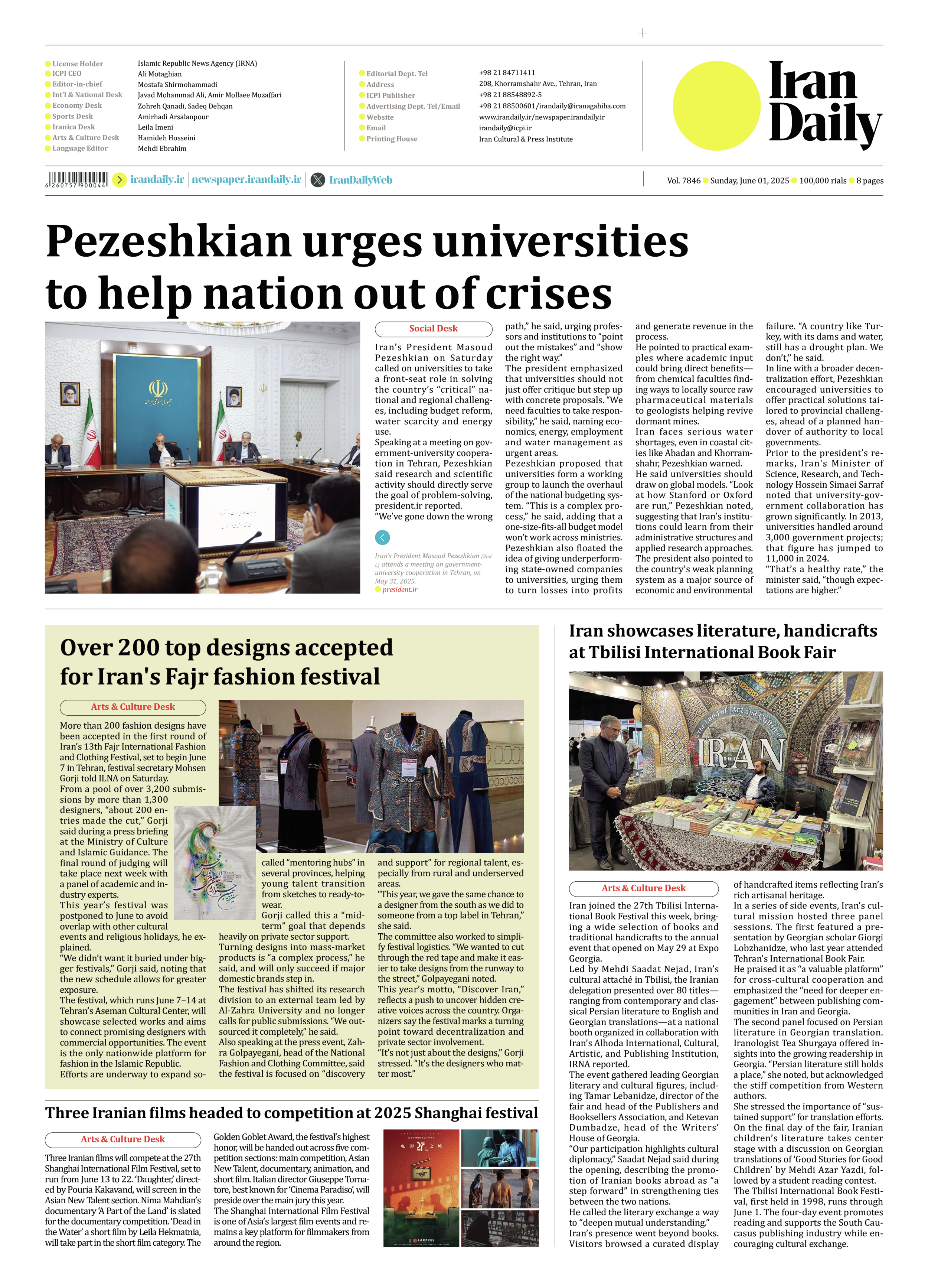
Iran showcases literature, handicrafts at Tbilisi International Book Fair
Iran joined the 27th Tbilisi International Book Festival this week, bringing a wide selection of books and traditional handicrafts to the annual event that opened on May 29 at Expo Georgia.
Led by Mehdi Saadat Nejad, Iran’s cultural attaché in Tbilisi, the Iranian delegation presented over 80 titles—ranging from contemporary and classical Persian literature to English and Georgian translations—at a national booth organized in collaboration with Iran’s Alhoda International, Cultural, Artistic, and Publishing Institution, IRNA reported.
The event gathered leading Georgian literary and cultural figures, including Tamar Lebanidze, director of the fair and head of the Publishers and Booksellers Association, and Ketevan Dumbadze, head of the Writers’ House of Georgia.
“Our participation highlights cultural diplomacy,” Saadat Nejad said during the opening, describing the promotion of Iranian books abroad as “a step forward” in strengthening ties between the two nations.
He called the literary exchange a way to “deepen mutual understanding.”
Iran’s presence went beyond books. Visitors browsed a curated display of handcrafted items reflecting Iran’s rich artisanal heritage.
In a series of side events, Iran’s cultural mission hosted three panel sessions. The first featured a presentation by Georgian scholar Giorgi Lobzhanidze, who last year attended Tehran’s International Book Fair.
He praised it as “a valuable platform” for cross-cultural cooperation and emphasized the “need for deeper engagement” between publishing communities in Iran and Georgia.
The second panel focused on Persian literature in Georgian translation. Iranologist Tea Shurgaya offered insights into the growing readership in Georgia. “Persian literature still holds a place,” she noted, but acknowledged the stiff competition from Western authors.
She stressed the importance of “sustained support” for translation efforts.
On the final day of the fair, Iranian children’s literature takes center stage with a discussion on Georgian translations of ‘Good Stories for Good Children’ by Mehdi Azar Yazdi, followed by a student reading contest.
The Tbilisi International Book Festival, first held in 1998, runs through June 1. The four-day event promotes reading and supports the South Caucasus publishing industry while encouraging cultural exchange.







